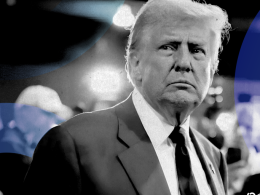In 2025, the debate surrounding Bitcoin’s status as “digital gold” continues to intensify, particularly as traditional assets like gold reach new heights. Peter Schiff, a prominent cryptocurrency critic, recently raised critical questions regarding Bitcoin’s valuation in light of its supposed role as a safe-haven asset. On August 14, 2025, Bitcoin achieved its all-time high of $124,457.12, yet it is currently trading approximately 13% below that peak, prompting Schiff to inquire about the reasons for this discrepancy.
Schiff’s concerns were shared via his social media platform, X, where he frequently discusses economic issues. He noted that despite significant governmental support, corporate investments, and rampant hype surrounding Bitcoin, its price has not only failed to keep pace with gold but has also declined in recent weeks. As prices for gold have surged, setting new records, Bitcoin’s performance stands in stark contrast, raising doubts about its reliability as a store of value.
In his latest commentary, Schiff emphasized the stark divergence between gold and Bitcoin’s performance. He pointed out that while gold has seen substantial gains—recording a rise of 31.1% year-to-date and trading at $3,439.32—Bitcoin’s trajectory tells a different story. Benzinga Pro data indicates that Bitcoin has dropped 0.9% to $108,217.42 within the past 24 hours, reflecting a 4.9% decrease over the last month. However, on a year-to-date basis, Bitcoin has gained 15.9%.

Schiff’s skepticism towards Bitcoin is not new; he has consistently warned about its long-term viability. He recently predicted that Bitcoin could potentially fall to $75,000, advising investors to consider selling their holdings and repurchasing at lower prices. His views resonate with ongoing discussions about Bitcoin’s sustainability in the current economic landscape, particularly as fiscal challenges mount in the United States.
“Despite all the hype and support, Bitcoin’s performance raises questions about its future,” Schiff stated. “Is it truly a safe haven when it consistently lags behind gold?”
Schiff also linked the current economic climate to historical decisions, including the United States’ departure from the gold standard in 1971. He has been vocal about the implications of the increasing national debt, arguing that it poses significant risks to the economy and investors alike.
As the cryptocurrency market evolves, Schiff’s observations serve as a reminder to investors to critically assess their positions. The contrasting trajectories of Bitcoin and traditional assets like gold not only highlight the volatility of cryptocurrencies but also raise fundamental questions regarding their role in a diversified investment portfolio.
In conclusion, while Bitcoin has enjoyed remarkable growth since its inception, the recent decline in its valuation prompts a reevaluation of its status as “digital gold.” Investors should remain vigilant and informed as the financial landscape continues to shift in 2025.
For further insights on the cryptocurrency market and investment strategies, visit Benzinga.










